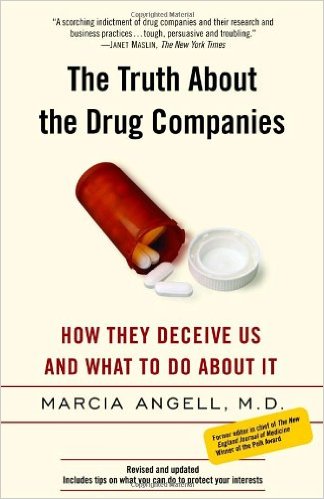Are you avoiding prescription medication Greg due to that concern? I am trying to figure out if you are giving me advice that you have taken yourself.
Most definitely.
Are you avoiding prescription medication Greg due to that concern? I am trying to figure out if you are giving me advice that you have taken yourself.
So you avoid taking prescription drugs because you think the system is rigged?Most definitely.
You should, because this happens on a regular basis, although not nearly as often as the tort lawyers' TV ads would suggest.An imperfect past is not the same as checkered. I don't worry when I am taking a prescription drug that I am going to suffer badly from a side effect that came through because the tests were rigged to just make money.
I would however if I bought some drug from overseas factory with no oversight as we have in US.
Should what? Be worried every time I take prescription medicine? Are you a doctor Rob?You should, because this happens on a regular basis, although not nearly as often as the tort lawyers' TV ads would suggest.
It doesn't matter if it comes from the same factory. It matters whether it is imported to US under US regulation or sold on the Internet bypassing the same. An Apple phone is built in China. But if you went and sourced a phone from the same factory without Apple oversight, you would get a very inferior product.You shouldn't, because not only is the oversight in other countries similar to ours, in many if not most cases our current U.S generic supply comes from those same overseas factories.
...Are you a doctor Rob?
So you avoid taking prescription drugs because you think the system is rigged?
If so, then we hail from different shores.
 drugs to brought to market before the ill effects cab develop.. So yes I take drugs when there is no other option.
drugs to brought to market before the ill effects cab develop.. So yes I take drugs when there is no other option.Yes, it's been in my personal profile since I joined WBF.
It's hard for many "lay" people to understand just how money-driven the pharmaceutical industry and the FDA "oversight" are. Suffice it to say that few pharmaceuticals are tested on more than a few thousand people (if that) prior to general marketing, and the current standard for approval is only to be "as good as" currently approved drugs, based on that very limited testing. Several drugs each year lose their FDA approval due to side-effects that only become objectionably noticeable during post-marketing surveillance. Even more than that, as much as 60-70% of prescription drug consumption in the USA has no demonstrable benefit, except to pharmaceutical companies bottom line. Never underestimate the power of dedicated marketing, and I have no idea why this country continues to permit TV and other direct to consumer advertising for prescription medications (well, some idea, and it's not good).
BTW, do you know what was the first music to be recorded in history?
Au Claire de la Lun?
Yes. Congratulations, mon ami Pierrot, oops, mon ami Jack!




Thanks. I read through it but was a turn off the moment it got into the political aspects of government funding research. It is overall an opinion piece and not any kind of compass to guide us in this conversation.For anyone who still persists in misunderstanding the relationship between technology, invention and science, here is a superficial but basically accurate description in a non-technical mainstream newspaper.
http://www.wsj.com/articles/the-myth-of-basic-science-1445613954
No problem Rob. In that example, "I" is the proverbial one as one tells the story, not me. Indeed such a company exists with that product. So would you kindly answer the questions I asked?No offense, amir, but you are anything but a "science guy"; you are a technology guy who up to this point (about 5 years of my experience) has rarely demonstrated more than an occasional understanding of science.
Speaking of history of recording, there is a fascinating paper in the archives of AES (...)
It is fascinating that today we don't hear such feedback on superiority of digital recording to master tape even though it was there with such early digital electronics.
Tom Jung, that is referred in the texts you present, is a digital supporter and follower since day one. He gave Stereophile an interview in 2004 explaining why he switched in digital: (my bold)
To me, the side effects of digital weren't as harmful. I could never get my head past all the noise and distortion coming off the surface of the disc. God, it was always so hard to make something quiet. Some people's brains allow them to create a filter and hear through this and just listen to the music.
For anyone who still persists in misunderstanding the relationship between technology, invention and science, here is a superficial but basically accurate description in a non-technical mainstream newspaper.
http://www.wsj.com/articles/the-myth-of-basic-science-1445613954
| Steve Williams Site Founder | Site Owner | Administrator | Ron Resnick Site Co-Owner | Administrator | Julian (The Fixer) Website Build | Marketing Managersing |












